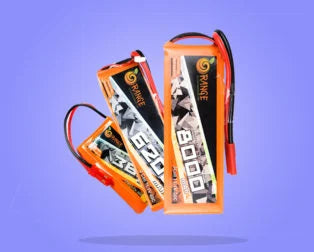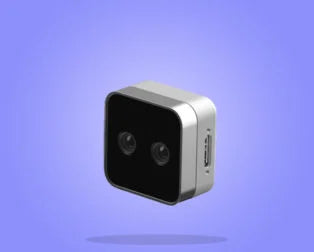Arduino 16 channel PWM Servo Motor Shield
- ୟୁନିଟ୍ ମୂଲ୍ୟ
- / ପ୍ରତି
Arduino 16 channel PWM Servo Motor Shield
The board have the TB6612 MOSFET drivers with 1.2A per channel current capability (you can draw up to 3A peak for approx 20ms at a time). It also has much lower voltage drops across the motor so you get more torque out of your batteries, and there are built-in flyback diodes as well.
Instead of using a latch and the Arduino's PWM pins, we have a fully-dedicated PWM driver chip onboard. This chip handles all the motor and speed controls over I2C. Only two data pins (SDA & SCL in addition to the power pins GND & 5V) are required to drive the multiple motors, and since it's I2C you can also connect any other I2C devices or shields to the same pins. This also makes it drop-in compatible with any Arduino, such as the Uno, Due, Leonardo and Mega R3.
Key Features
- 2 connections for 5V 'hobby' servos connected to the Arduino's high-resolution dedicated timer - no jitter!
- 4 H-Bridges: TB6612 chipset provides 1.2A per bridge (3A for brief 20ms peaks) with thermal shutdown protection, internal kickback protection diodes. Can run motors on 4.5VDC to 13.5VDC.
- Up to 4 bi-directional DC motors with individual 8-bit speed selection (so, about 0.5% resolution)
- Up to 2 stepper motors (unipolar or bipolar) with single coil, double coil, interleaved or micro-stepping.
- Motors automatically disabled on power-up
- Big terminal block connectors to easily hook up wires (18-26AWG) and power
- Arduino reset button brought up top
- Polarity protected 2-pin terminal block and jumper to connect external power, for separate logic/motor supplies
- Tested compatible with Arduino UNO, Leonardo, ADK/Mega R3, Due, Diecimila & Duemilanove.
- Works with Mega/ADK R2 and earlier with 2 wire jumpers.
- Download the easy-to-use Arduino software library, check out the examples and you're ready to go.
Arduino 16 channel PWM Servo Motor Shield
- ୟୁନିଟ୍ ମୂଲ୍ୟ
- / ପ୍ରତି
ତୁମର କାର୍ଟରେ ଉତ୍ପାଦ ଯୋଗ କରିବା |
You may also like
Arduino 16 channel PWM Servo Motor Shield
The board have the TB6612 MOSFET drivers with 1.2A per channel current capability (you can draw up to 3A peak for approx 20ms at a time). It also has much lower voltage drops across the motor so you get more torque out of your batteries, and there are built-in flyback diodes as well.
Instead of using a latch and the Arduino's PWM pins, we have a fully-dedicated PWM driver chip onboard. This chip handles all the motor and speed controls over I2C. Only two data pins (SDA & SCL in addition to the power pins GND & 5V) are required to drive the multiple motors, and since it's I2C you can also connect any other I2C devices or shields to the same pins. This also makes it drop-in compatible with any Arduino, such as the Uno, Due, Leonardo and Mega R3.
Key Features
- 2 connections for 5V 'hobby' servos connected to the Arduino's high-resolution dedicated timer - no jitter!
- 4 H-Bridges: TB6612 chipset provides 1.2A per bridge (3A for brief 20ms peaks) with thermal shutdown protection, internal kickback protection diodes. Can run motors on 4.5VDC to 13.5VDC.
- Up to 4 bi-directional DC motors with individual 8-bit speed selection (so, about 0.5% resolution)
- Up to 2 stepper motors (unipolar or bipolar) with single coil, double coil, interleaved or micro-stepping.
- Motors automatically disabled on power-up
- Big terminal block connectors to easily hook up wires (18-26AWG) and power
- Arduino reset button brought up top
- Polarity protected 2-pin terminal block and jumper to connect external power, for separate logic/motor supplies
- Tested compatible with Arduino UNO, Leonardo, ADK/Mega R3, Due, Diecimila & Duemilanove.
- Works with Mega/ADK R2 and earlier with 2 wire jumpers.
- Download the easy-to-use Arduino software library, check out the examples and you're ready to go.
You may also like
You may also like
Recommended products
Quick service and response, product quality and packing is satisfactory.
Well built shop, not only sales but they building your. Even they conduct seminar s. You get materials at reasonable price
Very pleased with the service and hospitality. Perfect place to solve projects for engineers.I had some problems with my project , went and sat down with the guys over there . We worked on it for 4hrs and the output came . Best part was the service we received, very pleased and appreciated. Thank you so much ENGINEER STORE
Very good customer service, always ready to help. They helped us with our project for 4 hrs straight, leaving their work behind. In the end, they refused to take a single penny. Wonderful people
By completing this form, you are signing up to receive our emails and can unsubscribe at any time.
FAQ Below are some of are common questions:
Shipping charge & Delivery timeline.
1) Standard shipping: Rs 49- The order gets delivered within 3-5 working days. (6-7 days in case of the battery as it travels through the surface)
2)Free shipping is applicable to the purchase of Rs.499 and above. The order gets delivered within 5-7 working days. (8-10 days in case of the battery as it travels through the surface)
3)Blue dart Air shipping Rs: 99 and above depending on parcel weight the order gets delivered within3-5working days.
4) Same-day delivery only applicable for Pune-specific pin codes Rs-79 delivery will be done same day between 1 p.m to 9 p.m (the order should be placed before 12:30 p.m)
How do I pay for my order?
You can pay through multiple payment options on theengineerstore.in the checkout page. You can pay through Credit/Debit Card, Internet Banking, Mobile Payments, Manual bank transfer, and Wallets. You can also apply a coupon that you might receive from The Engineer store or redeem The Engineer store points that you have earned from your previous purchases.
Cash on Delivery is offered theengineerstore.in and it is location dependent. Applicability of COD is determined by our system once you enter the pin-code of your area. Also the COD service is chargeable (Rs.25). It is charged by the shipping company for cash handlings.
Once you place a COD order, our executive will call you to confirm your order only after which your order will be processed.
It is best to prepay your order and buy confidently.
You can pay through multiple payment options on theengineerstore.in the checkout page. You can pay through Credit/Debit Card, Internet Banking, Mobile Payments, Manual bank transfer, and Wallets. You can also apply a coupon that you might receive from The Engineer store or redeem The Engineer store points that you have earned from your previous purchases.
Cash on Delivery is offered theengineerstore.in and it is location dependent. Applicability of COD is determined by our system once you enter the pin-code of your area. Also the COD service is chargeable (Rs.25). It is charged by the shipping company for cash handlings.
Once you place a COD order, our executive will call you to confirm your order only after which your order will be processed.
It is best to prepay your order and buy confidently.
It is understandable that a customer will have some technical query before making any purchase on theengineerstore.in.
No worries, we are there to answer your technical queries.
What customer needs to do?Submit a ticket mentioning1. Product code/SKU--->It is found on the product page.(just on the right hand side of the product image)2. Brief description of your query.Once we receive your query, we will get back to you soon with the possible answers.
It happens sometimes, In such cases the money is neither with us nor with the bank but if we receive your money without order, we will refund it within 2-3 working days. Rest assured, the money will come back to your bank account after 10-15 working days once the payment reconciliationhappens at bank's end.
If the money still does not reflect in your bank account, contact us and we will get back to you
What customer needs to do?
Submit a ticket mentioning1. Name of the customer2. Email ID used at the time of placing order.3. Any reference number of transaction that you received from bank.



